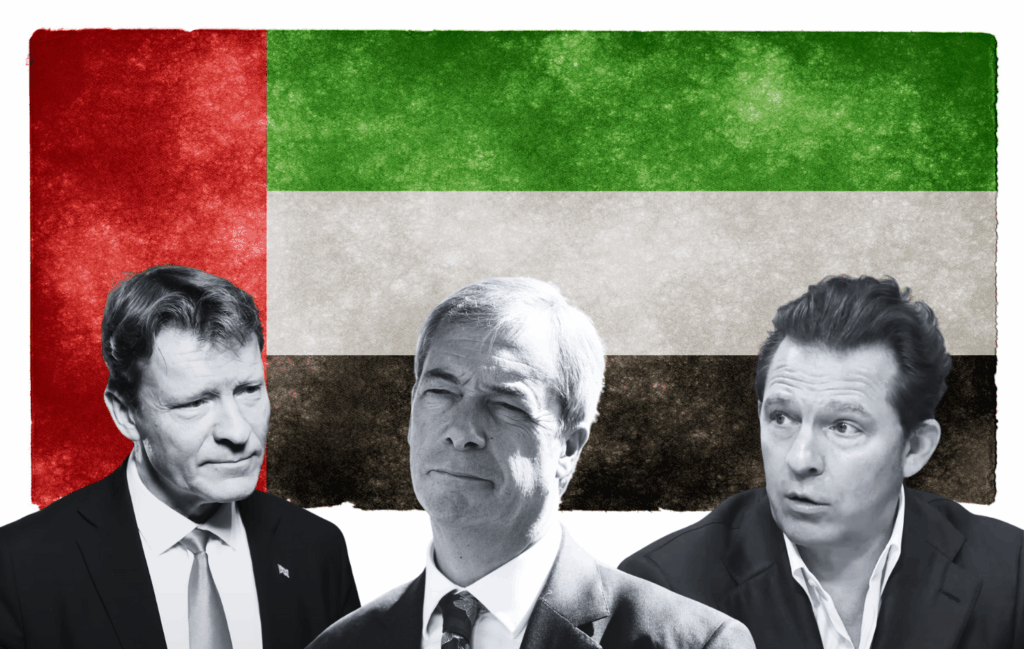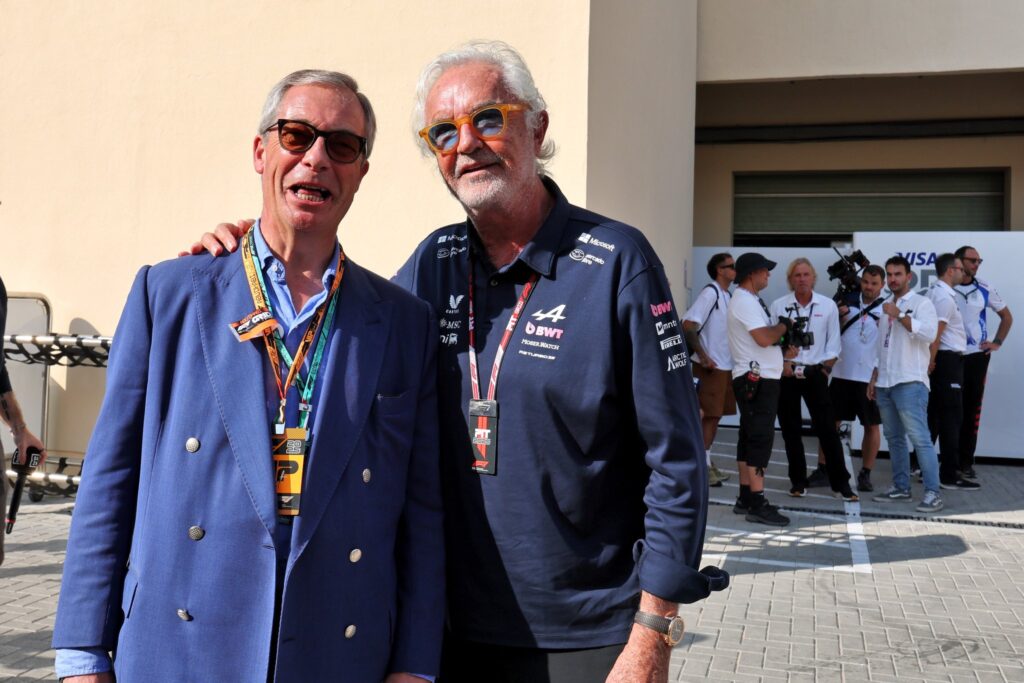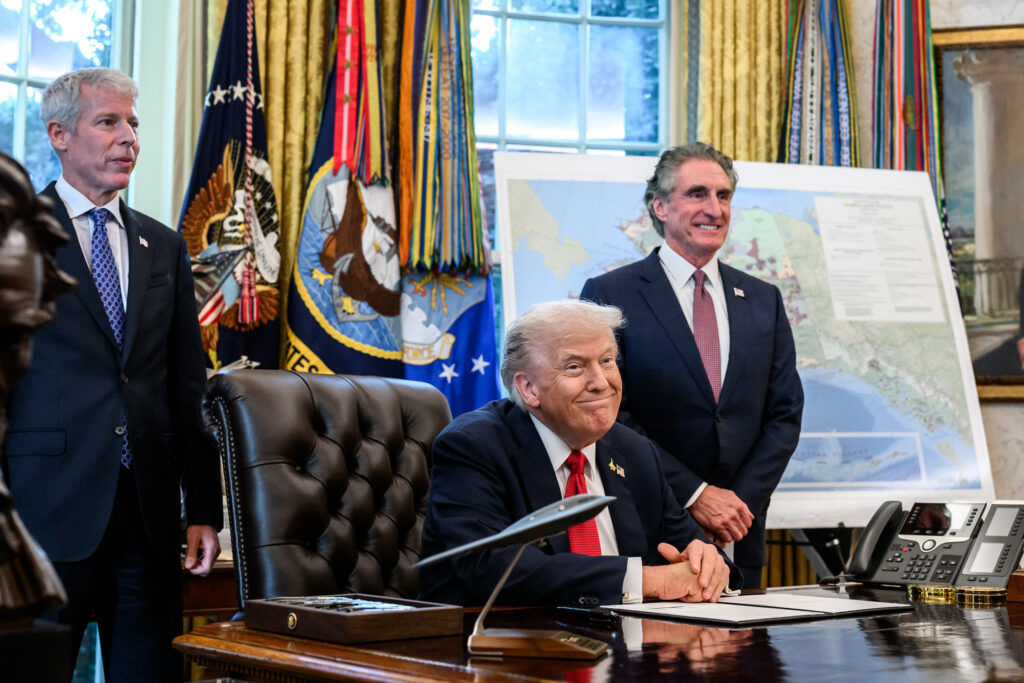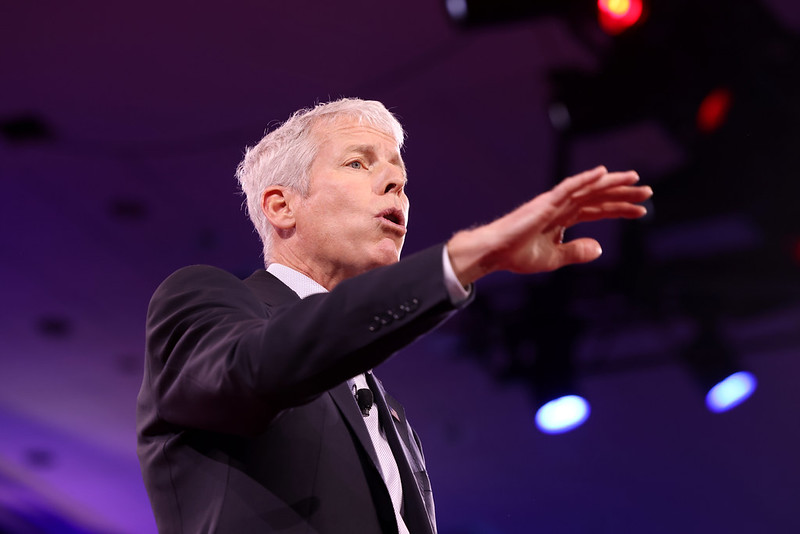This story is part of a DeSmog series on the influence wielded by the gas lobby in Europe and was developed with the support of Journalismfund.eu
Italy’s gas lobby should be entering early retirement. Instead, it’s rarely been riding so high.
The energy crisis triggered by Russia’s invasion of Ukraine, and the prospect that far-right politician Giorgia Meloni will win snap elections on Sunday, have all but eclipsed growing calls from a younger generation for a rapid phase-out of fossil fuels.
In fact, Italy seems to be moving in the opposite direction. An emergency decision to approve two new gas import terminals, and the virtual absence of discussion of climate policy on the campaign trail, have raised the risk that energy companies will leave Italy hooked on planet-warming fossil gas for decades to come, campaigners say.
“Fears of winter have been stoked, and families are terrified of being in the cold,” said Elena Gerebizza, energy and infrastructure campaigner at ReCommon, an advocacy group. “In this scenario, it’s getting harder to explain why we don’t need new gas infrastructure, or why we have to reduce consumption and dependence on gas.”
With the European Union pledging to slash carbon emissions by 55 percent by the end of the decade, compared with 1990 levels, Italian oil and gas company Eni and pipeline operator Snam have adopted net zero targets. But both companies remain wedded to fossil fuel-dominated business models, according to analysis by Oil Change International and the Institute for Energy Economics and Financial Analysis, even as climate impacts intensify.
Italy was hit by its worst drought in 70 years this summer, and less than 10 days before voting day, the eastern region of Marche was drenched with 400 millimetres of rain – an amount that would usually fall over six months. At least 10 people were killed in resulting flash floods, with four missing, including a boy who was swept from his mother’s arms, according to reports.
Even as the country experiences extreme weather first-hand, politicians referenced the climate crisis in less than 0.5 percent of their statements on Italian talk shows, online and on their Facebook accounts, according to a study by Greenpeace Italy and Osservatorio di Pavia, a media research institute.
With the exception of the leftist coalition Green Leftist Alliance and the populist Five Star Movement, which are trailing in the polls, all major parties want to double down on new gas infrastructure, according to a review of manifesto commitments by Ecco, a think tank.
If Meloni, leader of the far-right Brothers of Italy party, wins the election and forms a coalition with other right-wing parties, as polls project, then the gas lobby, which has long enjoyed a close relationship with the Italian state, may find it even easier to sidestep scrutiny, campaigners say.
“The Italian ultranationalist right will rely even more on turnkey ‘Italian champions’, from Eni to Snam to solve the energy crisis, fueling their billion-dollar business abroad, and subsidising new drilling in Italy,” said Antonio Tricarico, programmes manager at ReCommon.
Greater influence for the gas lobby could have implications far beyond Italy, which produces 11 percent of the EU’s greenhouse gas emissions. Eni and Snam are key members of Italian chamber of commerce Confindustria, which research group InfluenceMap says has been lobbying the EU to back new fossil gas projects, while opposing policies to limit demand.
“The European Union is at a historical turning point for its energy mix. Yet despite scientific guidance, the Italian industry association Confindustria is opposing the shift away from gas,” said Will Aitchison, InfluenceMap’s EU strategy manager.
Confindustria, Eni and Snam did not respond to requests for comment.
Lock-In
Even before the snap election was called in July, when prime minister Mario Draghi resigned following the collapse of his national unity government, Italy’s gas industry had won important concessions in the wake of the Ukraine invasion.
As Italy joined the scramble to secure alternatives to Russian gas, Draghi’s government authorised Snam to spend more than 700 million euros on two new terminals to receive cargoes of Liquefied Natural Gas (LNG) – fracked gas supercooled into liquid form for transport on tankers. Known as “regasification” terminals, the projects will be used to convert imported LNG back into gaseous form so that it can be fed into Italy’s pipelines. Underscoring the sense of urgency, the government decreed that all such infrastructure should be considered “strategic”, “non deferrable” and “urgent”.
Critics fear the projects will lock Italy into long-term dependence on fossil gas, pointing out that Snam has asked for a 20-year concession on a floating LNG terminal it plans to install at Piombino, Tuscany. Similarly, the other planned terminal, in Sardinia, could tie the island to gas for years, campaigners say.
“All the new gas infrastructure, including LNG terminals that Italy is mandating Snam to buy, has an impact in the long term,” ReCommon’s Gerebizza said. “This means that Italy is preparing to maintain this dependence on gas in the long term too.”
Italy says it has slashed the proportion of gas it imports from Russia to 25 percent from 40 percent last year, when it was the second biggest importer of Russian gas after Germany. Nevertheless, with the cost of wind and solar plummeting, think tank Ecco questions whether large and opaque investments in publicly-subsidised gas infrastructure could leave Italy saddled with stranded assets – at the taxpayer’s expense.
“I see this as a huge dead end, but one that’s incredibly profitable for the gas industry,” said Pascoe Sabido, researcher and campaigner with the Brussels-based research group Corporate Europe Observatory.
Nevertheless, leading candidates have rushed to back the projects.
“LNG terminals must happen…because we must free ourselves from dependence on Russian gas,” Meloni told a television show broadcast in late August. At a rally in Mestre, in the northeastern region of Veneto, on September 11, Meloni gave a speech voicing her support for new gas drilling and, in a media interview, declared that Italy could become “a gas hub for Europe.”
‘Italian Gas’
Although Meloni and other candidates have mentioned renewables during the campaign, the emphasis of right-wing parties, especially, has been on fossil fuels, from reopening coal plants to new gas infrastructure and drilling for “Italian gas” in the Adriatic.
“Abandoning fossil fuels overnight is unthinkable,” Nicola Procaccini, a Member of the European Parliament who serves as the Brothers of Italy party’s environment spokesman, told a delegation from climate movement Fridays for the Future this month, according to a video of the meeting published by Italian newspaper Il Fatto Quotidiano.
On August 25, Matteo Salvini, former deputy prime minister and a leading figure in the right-wing Lega party, told a talk show: “Unblock all energy facilities that to date are blocked by bureaucracy, extract gas, for example, in the Adriatic, because otherwise the Croatians will steal it from us,” according to the Greenpeace study.
Politicians closer to the centre of the political spectrum, such as Matteo Renzi, a former prime minister and leader of the Italy Viva party, and Carlo Calenda, leader of the Action party, have also voiced support for the new gas terminals and increasing Italian production.
Experts say fresh drilling in the Adriatic would generate only marginal benefits relative to Italy’s overall energy needs. Nonetheless, the calls are reassuring for the sector.
“Certainly, it is no mystery that a gas pipeline, or oil and gas, company would prefer a government that says yes to new pipelines, regasifiers and more drilling in the Mediterranean,” said Luca Iacoboni, Head of National Programs at Ecco.
In the year to June 2021, companies including Eni and Snam met more than 100 times with Italian ministers, including Roberto Cingolani, minister of the ecological transition, according to a report by ReCommon. The companies wanted to ensure that Italy’s COVID-19 recovery funds would be used to “tie us to gas for the next decades,” the report states.
‘Conflict of Interest’
In a move that appeared emblematic of the close ties between the gas lobby and the Italian state, Claudio Descalzi, chief executive of Eni, joined foreign minister Luigi Di Maio on a trip to Algeria in February, and then to Angola and Republic of Congo in March, in a push to diversify sources of gas away from Russia.
Confindustria has also provided an important vehicle for Eni and Snam to promote their interests, with Descalzi serving on the group’s General Council and Advisory Board, and Snam represented on working groups on issues including energy efficiency and industrial emissions.
“During the past year, Confindustria…has mounted a two-pronged strategy against the energy transition: supporting new fossil gas infrastructure and expansion of national production, while at the same time advocating against policies at EU level that would limit fossil gas demand,” said InfluenceMap’s Aitchison.
In 2021, Snam spent nearly 300,000 euros on lobbying European institutions, LobbyFacts reported. According to the InfluenceMap findings, Snam advocated for “preferential treatment for fossil gas and LNG” in its November 2021 consultation response on an EU framework for taxing energy products.
Snam is also active in a network of interlocking European lobby groups seeking to present fossil gas as part of the solution to the climate crisis. The Milan-based company is a member of Gas Infrastructure Europe (GIE), a Brussels-based group representing the LNG terminal industry. GIE is in turn a member of Gas Naturally, a group arguing that “natural gas helps make a clean future real”. Snam also belongs to Gas for Climate, another group promoting “renewable gas,” an attempt to “paint the gas industry green,” according to Corporate Europe Observatory.
Snam is also part of ENTSOG, a pipeline operators’ association, which Sabido described as “a gas lobby group within the European Commission structures which is given the responsibility of projecting the next 10 years of gas use.”
“So, there’s a huge conflict of interest where you have these companies providing the Commission on how much gas we need,” Sabido said.
Young Activists Fight Back
While octogenarian Italian politicians set up TikTok accounts in a bid to reach the younger generation, party manifestos generally lack comprehensive commitments on climate change – despite polling showing the crisis is a priority issue for voters aged 18-24.
With electricity bills projected to double after October, youth activists say the gas lobby is crowding out discussion of policies that could ease the energy and cost-of-living crisis and, at the same time, speed a transition to cleaner energy: from energy efficiency and windfall taxes to cushion the impact of soaring bills, to simplifying the long authorisation processes delaying the roll-out of renewables. The Ministry of Ecological Transition’s decision to sponsor a four-day gas industry conference – Gastech – in Milan earlier this month became a flashpoint for such criticism.
“It’s terrifying that people who should be thinking about the good of their citizens, have sponsored this [event],” said Sara, a twenty-three-year-old activist with Extinction Rebellion Italy, who asked to be identified by her first name. “There is basically this idea that gas can be the only solution to all our energy problems.”
Filippo Sotgiu, 21, a spokesperson for Fridays for a Future Italy, which proposed its own science-based climate agenda, urged Italians to join a global climate strike on Friday – and cast their votes carefully.
“Voting for those who succeed better than others in putting the climate at the center can be a very important tool,” he said. “We want to make sure that politics gives answers to those who do not feel heard, but it’s also the parties’ responsibility to make sure this happens.”
Subscribe to our newsletter
Stay up to date with DeSmog news and alerts






